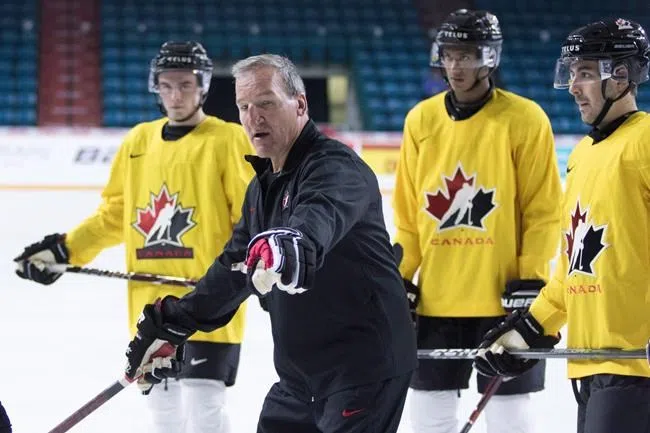
Tim Hunter brings grit, hard work to bench of Canada’s junior hockey team
KAMLOOPS, B.C. — The young men vying for a spot on Canada’s junior hockey team know their coach’s storied legacy.
They know Tim Hunter spent 15 seasons playing in the NHL as an enforcer in Calgary, Quebec, Vancouver and San Jose. They know he won a Stanley Cup with the Flames in 1989, an entire decade before any of them were born.
And they know Hunter’s now sharing his experience with young players, working to shape the next generation of hockey greats.
“We all know his history and what he did for the game. So it’s really nice to have him behind the bench. He gives great advice for young players, just how to develop and feel comfortable out there,” said Antoine Morand, a forward who’s hoping to make Canada’s squad this winter.
